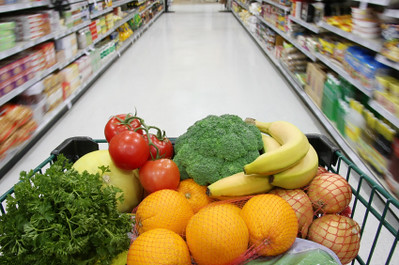A report done by the University of Guelph and Dalhousie University says that food prices will rise between 2 and 4 percent in 2020.
The 10th annual Food Price Report shows that meat prices will increase the most at between 4 and 6 percent, with baked goods only rising about 2 percent in the coming year.
Eating out will also cost more. Prices for restaurants are set to increase 2 to 4 percent.
Seafood and vegetables will also cost 2 to 4 percent extra, with fruits increasing in price by 3.5 percent.
The report says that the average Canadian family will pay, on average, $487 more in groceries in 2020.
Manitoba, Quebec. P.E.I. and B.C. will see a higher food inflation rate thanks to strong economic forecasts, while Alberta, Saskatchewan, New Brunswick, and Nova Scotia will see below average rate increases.
Among several contributing factors of the increases, climate change is a major one, according to researchers.
In the report, the authors write that Canadian food systems will be affected by changing weather patterns, including droughts and forest fires, heavy precipitation, reduced freshwater access and rising sea levels. They added that the parts of the country that rely heavily on agriculture will struggle with a drier summer and wetter spring and winter.
The report goes on to predict that producers in Canada will have to deal with unpredictable yields, harmful heat waves, and disease and pest outbreaks.
Despite all the negative things, they see opportunities for healthier solids due in part to carbon sequestration and reduced amounts of greenhouse gas emissions through changing land-use practices, provided that climate change efforts are conducted properly.
The authors also expect that the federal carbon tax will boost food prices somewhat as well.
To read the full report, click here.







